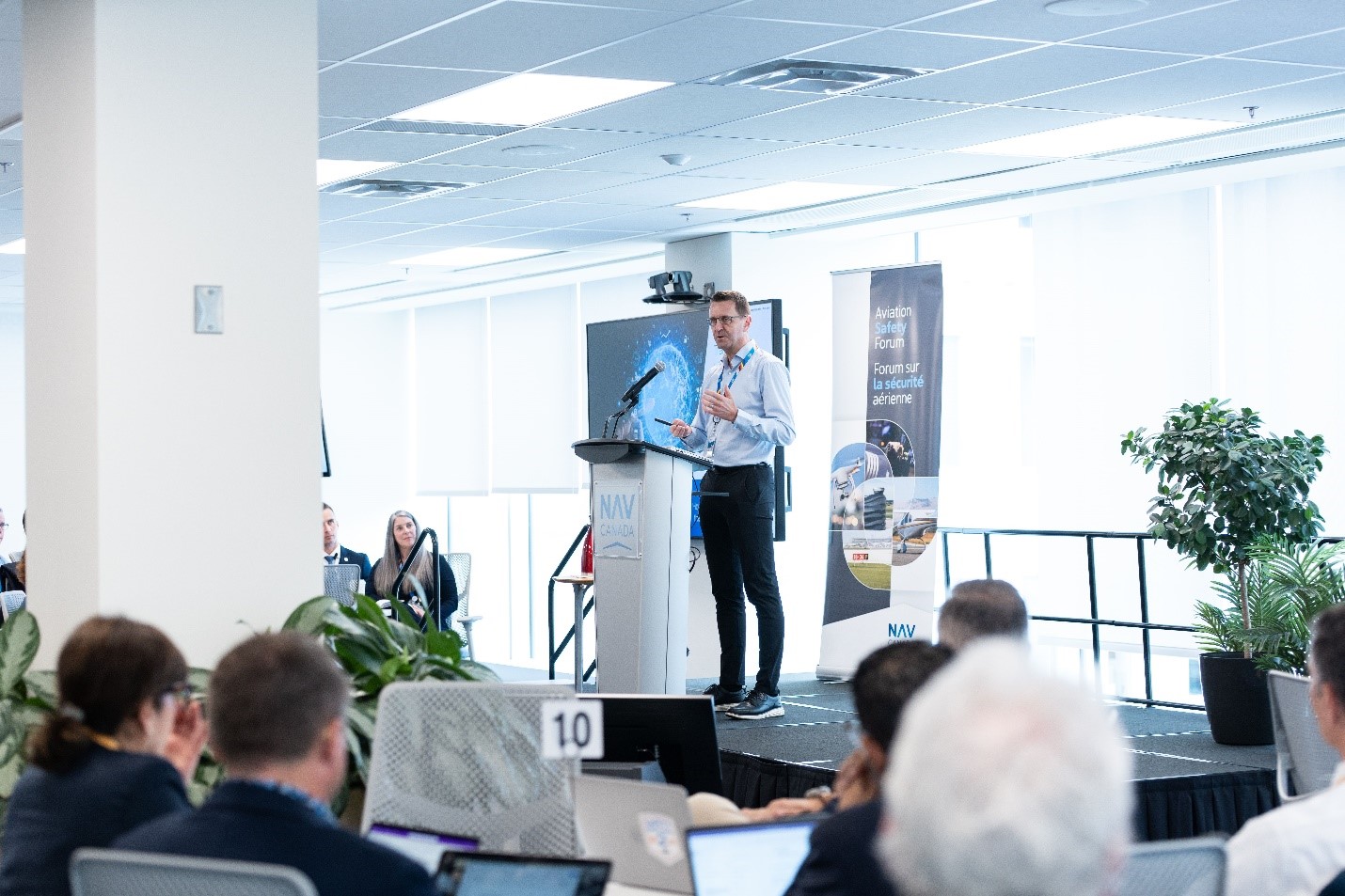







June 17, 2025
Bringing together more than 200 aviation professionals from across the country, the Spring 2025 Aviation Safety Forum focused on advancing operational safety through collaboration, innovation, and shared learning. Hosted at NAV CANADA’s head office in Ottawa, the three-day event featured keynotes, panels, and workshops exploring Canada’s top aviation safety risks, runway safety strategies, and emerging technologies—all under the unifying theme of “Collaborating for Safety.”
The three-day forum, which ran from May 6-8, 2025, brought together stakeholders from across the aviation ecosystem. What followed was a deep, multi-dimensional dive into Canada’s top aviation safety risks, runway safety practices, and emerging safety technologies.
At its core, the Aviation Safety Forum is designed to foster a culture of collaborative aviation safety risk management. This initiative supports NAV CANADA’s goal to work side-by-side with industry stakeholders to identify, address and reduce specific operational risks.
Additionally, the ASF meets Transport Canada’s requirement for information exchange among Canada’s aviation community—ensuring that responsibility for safety is shared and supported across the entire sector. This forum was built not to just share safety information, but to create stronger connections between stakeholders, as Yoan Marier, Chair of the Transportation Safety Board of Canada, explains, “safety goes beyond compliance with regulations—it's a shared responsibility driven by proactive collaboration and information-sharing between industry stakeholders, early action, and a commitment to learning from past mistakes and improve continuously.”

The forum opened with impactful remarks and presentations from NAV CANADA, Transport Canada, the Canadian Air Traffic Control Association (CATCA), the Air Traffic Specialists Association of Canada (ATSAC), and the Transportation Safety Board. Speakers emphasized the critical importance of inter-agency collaboration and the urgent need for a forward-looking approach to aviation safety.
Key topics revolved around:
Runway operations took center stage on day two, with an in-depth look at the work of Local Runway Safety Teams (L-RST). Presenters from NAV CANADA’s site in Whitehorse and the Vancouver Airport Authority shared real-world examples of stakeholder coordination at the airport level.
The final day took a hands-on turn, offering an interactive workshop format that encouraged open dialogue and solution-building around real-world aviation safety challenges. Participants tackled issues such as:
This format created space for dialogue, hands-on learning, and the exchange of actionable insights. As CATCA President Nick von Schoenberg noted; “for me, it was important to see that NAV CANADA is taking a strong leadership role by enabling real collaboration within the sector—even when that touches on sensitive topics. That, and witnessing the evolution towards a more proactive approach to safety were the highlights of the forum, in my opinion. We must all keep challenging each other and build on this!”

Throughout the Aviation Safety Forum, a unifying message resonated: safety is everyone’s responsibility. Progress is only possible through open communication, mutual respect, and a collective commitment to continuous learning.
As the aviation sector continues to evolve with new technologies, growing traffic, and increasing complexity, so do the ways we work together. Collaboration at every level of the aviation system remains the key to unlocking smarter, safer operations. As Anthony MacKay, VP & Chief Safety and Quality Officer puts it, “the value of the ASF is in the takeaways and actions of the participants—after the meeting. Let’s keep moving safety forward.”

NAV CANADA is already preparing for the next Aviation Safety Forum, which will be held from October 21-23, 2025 at the company’s head office located in Ottawa, Ontario. Stakeholders will once again have the opportunity to participate in person or virtually.
Want to stay connected or learn more about future events? Follow NAV CANADA on LinkedInOpen a new window or visit our air traffic safety website for updates.